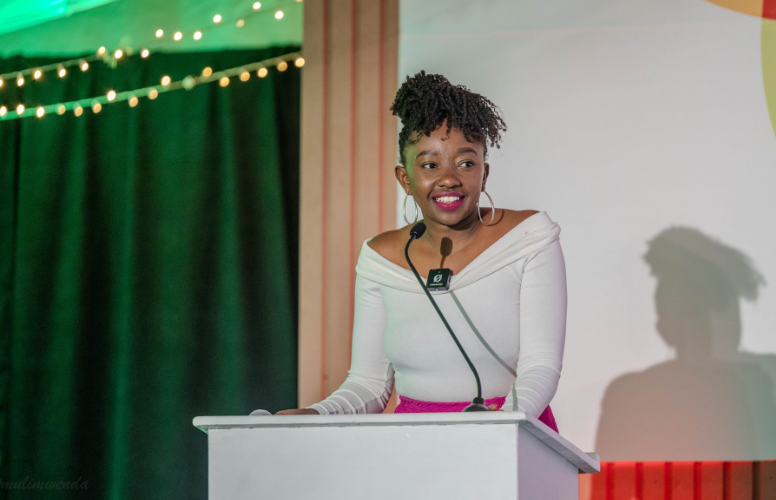Give priority to women participation in AfCFTA plan

Rose Ronoh
The African Continental Free Trade Area (AfCFTA) is one of the flagship projects of the African Union (AU) Agenda 2063, and it is expected to be a key driver for Africa in realising continental structural transformation and industrialisation, as envisioned in the blueprint’s shared road map for inclusive and sustainable growth in Africa.
However, as the world celebrated International Women’s Day last week, a key concern arose regarding women’s participation in AfCFTA, with various studies showing fewer women than men are well prepared to take advantage of the trade and economic opportunities presented by theinitiative. This is despite 75 per cent of most cross-border traders in Africa being women.
As a result, there is a need to think about implementation in a way that increases women’s economic participation and helps them integrate more fully into high-paying sectors of the economy. As of January, 41 countries had ratified the AfCFTA agreement, including Kenya, Rwanda, Burundi and Uganda.
The main goals of the AfCFTA are to “create a single market for goods and services, facilitated by movement of persons, to deepen the African continent’s economic integration.”
This is consistent with the Pan African vision of “an integrated, prosperous and peaceful Africa” enshrined in Agenda 2063’1 and is intended to “promote the attainment of sustainable and inclusive socioeconomic development, gender equality, and structural transformation of the State Parties.”
This is an acknowledgement that gender mainstreaming in the AfCFTA is improving women capacity to participate in the economic and trade opportunities provided by the AfCFTA agreements and is critical to the transformation of Africa.
Additionally, the introduction of the Women and Youth protocol to the AfCFTA is a positive move that appreciates the unique challenges faced by women traders in Africa some of which include lack of information, lack of access to capital, poor and uninclusive trade policies and a multiplicity of non-tariff barriers.
East African Community (EAC) has demonstrated it recognises the key role of women in regional integration and that gender equality and women’s empowerment are central to its mandate and approach to development.
In this regard, EAC adopted the Gender Policy in 2018, which provides a “framework to accelerate realisation of gender equality, fairness, non-discrimination and fundamental rights in East Africa.”
The policy framework is a tool for advancing East Africa’s political and social economic integration, ensuring gender issues are included on the EAC agenda, accelerating gender mainstreaming, contributing to higher living standards and enhancing citizens’ efforts to play their rightful role in a globalised world.
The gender policy has prioritised policy actions such as improving gender analysis in macroeconomic policy formulation, implementation, monitoring and evaluation, strengthening gender mainstreaming in national economic processes, economic policy formulation, and gender budgeting initiatives, and promoting equitable access by women and minorities.
The EAC is also working on developing a joint implementation strategy for the AfCFTA that takes into consideration gender inclusivity, furthermore with the assistance from GIZ, the EAC convened a regional workshop to deliberate gender mainstreaming of the AfCFTA and initiatives to be included in the women and youth protocol some of which include the Simplified Trade Regime.
Regrettably, and despite significant integration developments in the EAC and the potential of the AfCFTA agreement in transforming lives in Africa, awareness levels and knowledge on how to take advantage of the agreement have been very low among private sector players who are the deal’s primary beneficiaries. Women in the EAC have even lower levels of awareness and knowledge.
To advance the AfCFTA agreement’s goal of gender equality as a potential force for inclusive economic growth and transformative change, member countries must mainstream gender into AfCFTA. This implies the need for a coordinated approach between the public and private sectors in implementing AfCFTA as well as the need to raise awareness of the potential benefits, opportunities and challenges presented by AfCFTA among key actors in the public and private sectors, including women traders.
As part of the intervention and to address this information and knowledge gap among urban and cross-border women in the region, EAC secretariat, in collaboration with GIZ and with TradeSmart Consult Ltd, as the implementing partner, has hosted a series of workshops, webinars and awareness-raising activities in Kenya, Uganda, Tanzania and Rwanda in recent weeks. The main goal of the initiative is to raise awareness and provide information to women traders in the EAC on how to take advantage of the AfCFTA.
Such efforts should be encouraged and more players come onboard because if we don’t prepare ourselves and our women, if we sit back and produce nothing, we will end up consuming what other countries produce. We will end up as net importers and merely acting as a conduit for others, while it should be an all-rounded beneficial trade forum.
— The writer is an International Trade Specialist and AfCFTA champion















